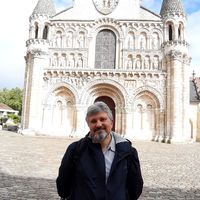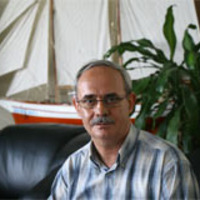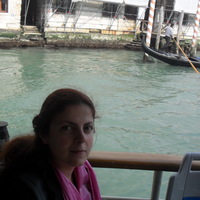Papers by Antonio TRAMPUS

Il rapporto fra la massoneria e la Chiesa nella storia italiana e stato mutevole nel tempo e dipe... more Il rapporto fra la massoneria e la Chiesa nella storia italiana e stato mutevole nel tempo e dipende dalla natura stessa della muratoria, che sin dalle sue origini ha assunto caratteristiche diverse in funzione dei contesti culturali e politici nei quali si e trovata ad operare. Per quanto continuino a sopravvivere ambigue classificazioni della massoneria entro la tipologia delle societa segrete e delle scienze occulte piuttosto che tra le forme di sociabilita tipiche dell’eta moderna, e importante ricordare che a partire dalle radici tardo cinquecentesche, le logge si sono presentate essenzialmente come un fenomeno culturale, attento a rivendicare la sua neutralita sia rispetto alle questioni di fede sia alla politica. Lo affermavano in modo chiaro tanto le Constitutions di James Anderson (1723) quanto i documenti delle logge continentali e italiane della prima meta del XVIII secolo. Si tratta di una prescrizione ritenuta necessaria perche garantiva la sopravvivenza delle logge in ...

Verifica di una ipotesi CDU: 949.7!31stria-Cittanova(04) Saggio scientifi co originale Fratello m... more Verifica di una ipotesi CDU: 949.7!31stria-Cittanova(04) Saggio scientifi co originale Fratello minore del più celebre Gian Rinaldo, Stefano Carli certamente è da considerare una figura minore nella cultura istriana del Settecento e come tale sempre finora è stato presentato. 1 È una valutazione da condividere, che trova conferma nei più recenti studi sul personaggio dai quali si coglie la ricorrente contrapposizione sul piano culturale tra Gian Rinaldo e Stefano, che sirisolve nella opposizione tra cultura preilluministica di respiro nazionale e cultura erudita di carattere provinciale. 2 Contrasto frequente, come noto, nel mondo culturale settecentesco e che trova corrispondenza, nel nostro specifico caso, in rapporti personali all'interno di un legame di sangue: due fratelli, uno proteso verso orizzonti culturali di notevole estensione, l'altro sempre limitato, pur con apprezzabili tentativi di apertura, dai confini della «piccola patria». Un recente e sintetico profilo biografico 3 ha messo bene in luce i meriti e le contraddizioni in Stefano Carli, ma pure ha reso evidente quanto risulti difficile sintetizzare l'attività culturale di un personaggio il cui lavoro è noto soltanto in parte, conosciuta essendo soltanto una sua opera. La figura che ne risulta è quella di un capodistriano, nato nel1726, che studiò presso gli Scolopi della città natale, che visse alcuni anni a Costantinopoli apprendendo lingue orientali e che, dopo avere compiuto studi superiori ed universitari, dispersivi e non regolari, divenne nel1763 Sovrintendente ai boschi dell'Istria. Una figura che appare sempre condizionata, prima in modo positivo e poi in modo negativo, dall'ombra del fratello maggiore Gian Rinaldo; al confronto sembra avesse dimostrato maggiore individualità il terzo e ultimo
I rapporti internazionali nei 150 anni di storia di Ca’ Foscari, 2018
fter the Second World War the birth of the European Society of Culture, founded in Venice by Umbe... more fter the Second World War the birth of the European Society of Culture, founded in Venice by Umberto Campagnolo, was the basis for the development of a culture of peace and democracy that directly involved Ca’ Foscari University’s professors. Giovanni Stiffoni (1934-1994), in particular, worked as a scholar and teacher to develop relations with Spain as this gradually emerged from the dictatorship.
Josephinismus zwischen den Regimen, 2016
Centro di Studi sull'Illuminismo europeo "Giovanni Stiffoni" Fonti e studi Fonti-II Edizione del ... more Centro di Studi sull'Illuminismo europeo "Giovanni Stiffoni" Fonti e studi Fonti-II Edizione del Progetto di costituzione della Repubblica Napoletana presentato al Governo Provvisorio dal comitato di legislazione diretta da Vincenzo Ferrone Centro di studi sull'Illuminismo europeo. Comitato scientifico:
The Legacy of Vattel's Droit des gens, 2019
Emer de Vattel's Le Droit des gens, ou principes de la loi naturelle appliqués à la conduite et a... more Emer de Vattel's Le Droit des gens, ou principes de la loi naturelle appliqués à la conduite et aux affaires des nations et des souverains was first published in 1758, following a longish gestation period (1753-1757). The book was preceded by a series of short publications, notably essays on philosophical, moral, legal and literary subjects, published by Vattel since the late 1740s. In the immediate aftermath of its appearance at the height of the Seven Years' War, the Droit des gens became the object of academic and political discussion and of quick reprints, including pirate











Uploads
Papers by Antonio TRAMPUS
GIUSEPPE BIGNAMI, An unknown portrait of Casanova
STEFANO FEROCI, Il “tesoro” dell’avventuriero russo Ivanoff
MARCO LEEFLANG AND TOM VITELLI, C. sur C.
DINO DETAILLEUR, The Bragadin Encounter. A historical assessment of an episode in the memoirs of Giacomo Casanova
MARCO LEEFLANG AND ANTONIO TRAMPUS, Correspondence between Carlo L. Curiel and Bernhard Marr. Part I, 1919-1920
MICHELA MESSINA, Un amico di Casanova. L’iconografia di Karl von Zinzendorf tra spazio privato e destinazione pubblica
ANTONIO TRAMPUS, Entre de Ligne et Zinzendorf: bio-bibliographie de Georges Englebert 1926-1995
Notes & Queries .
Abstracts
Normes de rédaction
about the website www.giacomo-casanova.de; BRANKO ALEKSIC´, Dans la cinematographie casanovienne. Le «Dernier amour» appelle le «premier»; GIANLUCA SIMEONI, Bibliographical Notes: 2013-2016 & Addenda; FURIO LUCCICHENTI Enrico Straub (1935-2018); Notes and Queries ; Abstracts ;The Authors ;List of subscribers and libraries.
Its purpose is to share news, promoting the knowledge and study of Casanova, of its time and its European and international echo through new research, cultural debates, editions of unpublished or unknown documents, with abstracts written in English. A non-profit making enterprise, it appears once a year as a booklet in limited, numbered copies. The issue appears in 250 copies.
Editorial board: Stefano Feroci (Paris-Firenze, I), Marie-Françoise Luna (Grenoble, F), Marco Menato (Gorizia, I), Michela Messina (Trieste, I), Antonio Trampus (Editor-in-Chief, Venezia, I), Tom Vitelli (Salt Lake City, USA), Helmut Watzlawick (Genève, CH) with Gianluca Simeoni (Cremona, I) for the Bibliographical Bulletin.
Available from January 28, 2019.Book subscription and orders (25.00 Euro, exluding postage and packing) directly at the publisher:
Simone Volpato, Libreria Antiquaria Drogheria 28, Trieste (Italy), v. G. Ciamician 6, 34123 Trieste (simonevolpatoeditoria@gmail.com) or via :
www.maremagnum.com
www.vialibri.net
All correspondence, texts submitted in view to publication, books/articles for review, should be addresse to:
Antonio Trampus, Ca’ Foscari University of Venice, Department of Linguistics and Comparative Cultural Studies, Ca’ Bembo - Dorsoduro 1075, 30123 Venezia, Italy, Email: trampus@unive.it
leading light of Neapolitan Enlightenment – the copy of Serra’s "Breve trattato", to which he would refer to compose his eulogy. 23 It is, however, clear in the light of the scenario that we have reconstructed that Salfi’s interest in Serra was not prompted solely by sheer – albeit erudite –curiosity or an appreciation of the “first writer on civil economy”. The reasons that drove him to take an interest in the "Breve trattato" become comprehensible precisely in the context of a form of “cultural consumption” and the interpretations that could be made of it between the 18th and 19th centuries in the light of a series of circumstances that came to coincide: the intellectual tradition of the Neapolitan Enlightenment, which, through Antonio Genovesi and Gaetano Filangieri, had stressed the connection between the need for good laws and political economy.
Il primo incontro, Pubblicare carteggi eruditi: metodi e questioni, è previsto per mercoledì 20 ottobre 2021, ore 14.30; l'incontro potrà essere seguito anche a distanza.
Gli altri incontri programmati saranno dedicati a: Pubblicare carteggi del Novecento (mercoledì 19 gennaio 2022); Il romanzo nel Settecento (mercoledì 23 febbraio 2022); Casanova tra edizioni e carteggi (mercoledì 23 marzo 2022); I carteggi come fonti della storia della diplomazia (mercoledì 4 maggio 2022).
Comitato Scientifico: Corrado Viola, Gian Paolo Marchi, Fabio Forner, Cristina Cappelletti, Fabio Danelon, Gian Paolo Romagnani.
Comitato organizzativo: Corrado Viola, Fabio Forner, Cristina Cappelletti.
I seminari sono organizzati con il patrocinio della Società Italiana di Studi sul Secolo Diciottesimo (SISSD) e dell'Associazione degli Italianisti (ADI).
Università Ca’ Foscari Venezia
24-25 settembre 2019
Organizzatori:
Fabio D’Angelo (Università di San Marino),
Giulia Delogu (Università Ca’ Foscari),
Antonio Trampus (Università Ca’ Foscari)
A first step is for the creation of the HISTORICAL ATLAS OF FREE PORTS. The ATLAS is not a mere visual representation, but of an instrument of interpretation in order to highlight phenomena of convergence and divergence between, institutional, social and economic processes. A beta version of the ATLAS, focused on the Adriatic area, can be found here: https://spark.adobe.com/page/yQrpnc7TGdtZF/
the results of the first part of this project carried out by Antonio Trampus (P.I.), Giulia Delogu and Fabio D'Angelo at the DSLCC - Ca' Foscari University of Venice in collaboration with the Veneto Region and the Istituto Regionale per la Cultura Istriano-Fiumano-Dalmata of Trieste, which funded this research. Other institutional partners are the Società Istriana di Archeologia e Storia Patria of Trieste and the Centro di Ricerche Storiche of Rovigno in Croatia. A complete recollection of the results is published in the volume "Venezia dopo Venezia. Città porto, reti commerciali e circolazione delle notizie nel bacino portuale veneziano tra Settecento e Novecento" (Trieste, Fiume, Pola e l’area istriano-dalmata), ed. A. Trampus (Trieste, 2019). This pdf, part of this volume ("Città-porto, porti franchi e governo delle città nella storia europea"), explains the general goals of this project.
Thanks to the specialist’s contributions with different backgrounds and trajectories, this volume attempts to encourage a few forays into the frontiers of Enlightenment assumptions. These assumptions have managed to cement in the projects raised by Western legal culture over the last three centuries. With a diachronic and transatlantic perspective, the contributors confront the dynamics where the border became a perimeter and a limit. Border conceives capable of stabilising and absorbing society’s structural tensions, only to open up or break, when the illusion of having reached the perfect building collided with the discovery of structural cracks. Hence, at this time, it rised a reflection on the foundations that had made the will and the individual the inexcusable (which does not mean exclusive) elements of the decline of the political and legal aspects of the Western culture. In the second half of the 20th century, this ‘West’ came to make man-citizen and his rights the parameters of the humanity, reaching the frontier where the reflection and praxis of power are still moving today.
Festschrift für Ulrike Kindl mit Beiträgen von / Studi in onore di Ulrike Kindl con contributi di / Scric n unëur de Ulrike Kindl cun cuntribuc de:
Leo Andergassen | Roland Bauer | Fabio Chiocchetti | Alessandro Costazza | Nicola Dal Falco | Michael Dallapiazza | Siegfried de Rachewiltz | Ivan Dughera | Vincenzo Ferrone | Marco Forni | Cristina Fossaluzza | Joachim Gatterer | Adina Guarnieri | Andreas Hapkemeyer | Hans Heiss | Leo Hillebrand | Tiziana Lippiello | Guido Massino | Andreas Oberhofer | Hannes Obermair | Günther Pallaver | Werner Pescosta | Josef Prackwieser | Patrick Rina | Paul Rösch | Marcello Soffritti | Martha Stocker | Elisa Tappeiner | Antonio Trampus | Oswald Überegger | Martha Verdorfer